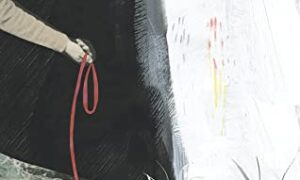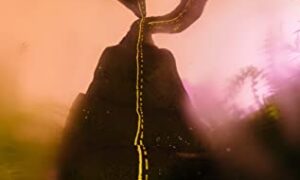 Chapter Six by Stephen Graham Jones
Chapter Six by Stephen Graham Jones
My rating: 4/5 cats




They were eighty miles from campus, if miles still mattered.
It had been Dr. Ormon’s idea.
Dr. Ormon was Crain’s dissertation director. If dissertations still mattered.
They probably didn’t.
Zombies. Zombies were the main thing that mattered these days.
this is another fun social-science spin on the zombie tale.
after all of the philosophical riffs in zombie lit about “is zombie still human?,” and “how much can we lose of ourselves and our society before we are ourselves no longer human?,” this one goes in the opposite direction—aims its focus backwards to speculate about early human development when two scholars of anthropology and evolutionary biology find themselves in a position to obtain first-hand knowledge about how man responds and reacts to a new apex predator—the zombie.
dr. ormon and his student crain head out into the zombie-filled world, determined to prove or disprove crain’s theory about why humans first became bipeds, and the efficiency of persistence hunting.
Their job as survivors, now, it was to go deeper than that infection.
This is how you prove a thesis.
to scholars of anthropology, the zombie plague is an opportunity—a laboratory of sorts in which to observe conditions firsthand that represent a watershed in human development.
Crain tried to frame their situation as a return to more primitive times. What the plague was doing, it was resetting humanity. Hunting and gathering were the order of the day, now, not books or degrees on the wall. Survival had become hand-to-mouth again. There was to be no luxury time for a generation or two, there would be no specializing, no social stratification. The idea of a barter economy springing up anytime soon was a lark; tooth and nail was going to be the dominant mode for a while, and only the especially strong would make it through to breed, keep the species going.
it’s funny and playful, while also being relentlessly dark. the humor takes the form of academia-mocking, as the pair debate etymology while following a…group of zombies down the road, studying their behavior:
“Do horde and herd share a root?” Crain asked.
He’d been tossing it back and forth in his head since the last exit.
“We use horde for invaders,” Dr. Ormon said, in his thinking-out-loud voice. “Mongols, for example.”
“While herd is for ungulates, generally.”
“Herd mentality,” Dr. Ormon said, handing the binoculars back. “Herd suggests a lack of intelligence, of conscious thought, while horde brings with it aggressiveness. Or, at the very least, a danger to the society naming those invaders.”
Then no, the two words only sounded similar.
Crain could accept this. Less because he had little invested in a shared etymology, more because the old patterns felt good, felt right: teacher, student, each working toward a common goal.
the single-mindedness of bickering academics will return, quite spectacularly, at the end of the story, and provides a satisfying punchline to the horror.
and, yes—the things they do are probably things they do not need to start doing yet, as this early into the apocalypse there are likely still other options, but the people that point this fact out in the comments on the tor site must not have ever met an academic. this is not about survival, this is about precious data, and the irrelevance of their findings because—apocalypse—is of no concern. which is pretty much the black-humor current running all through this story, duh.

read it for yourself here:
http://www.tor.com/stories/2014/06/ch…
read my book reviews on goodreads







